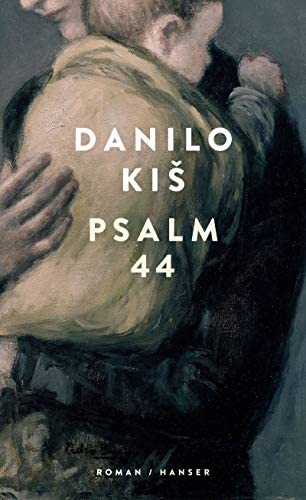Psalm 44
Danilo Kiš

*Thou hast made us like sheep for slaughter,
and hast scattered us among the nations.
Thou has sold thy people for a trifle,
demanding no high price for them...
Thou hast made us a byword among the nations,
a laughingstock among the peoples.
All day long my disgrace is before me,
and shame has covered my face.
Psalm 44:11-14 *
Psalm 44 is Danilo Kiš's first novel. Based on a real story he read in an article, about a couple with a newborn child who escaped from a concentration camp. The story in this novel is told from Marija's (the wife's) perspective, hours before the escape with her friend Žana, as they ruminate in their barracks next to their dying friend. There is a lot of stream of consciousness writing, and as I described the narrative to my husband he said it sounds very recursive - and yes it indeed is extremely recursive. Marija goes from lying near her dying friend awaiting for escape in the present, to remembering an encounter with her husband, to remembering their first encounter, to remembering her life in the village and so on. There is a lot of "ands" and "thens" and the sentences can be long and drawn out. Despite that, I didn't find it hard to keep track of, and in fact I found the prose impressive. The story is full of anecdotes in Marija's life, and most of them will leave an impact. Her fathers speech, her witnessing a massacre, her friend in a coffin, the skulls etc. The book is very short yet every sentence carries a lot of meaning. Most of Danilo's work is heavily influenced by his own experience during the Second World War, what with his jewish father being taken away and killed in a death camp, what with him witnessing the Novi Sad massacre in 1942. Something I really appreciated in this novel, and frankly didn't even expect when I read about the premise, was the female perspective and narrative. Marija is the protagonist, and undoubtedly the story is centered on her and the way she witnesses and perceives treatment of other women during the Holocaust, which was horrifying and gruesome. Female-centered narrative combined with her being Yugoslav gives us a piece of Holocaust literature that is less commonly shown, and as the translator John K. Cox says, it makes this novel stand out in a very dense genre.
